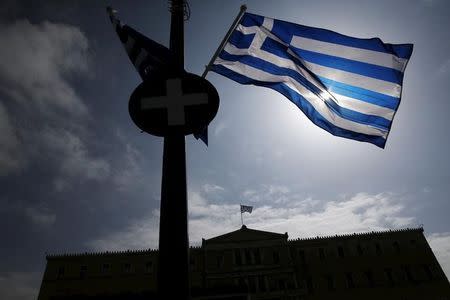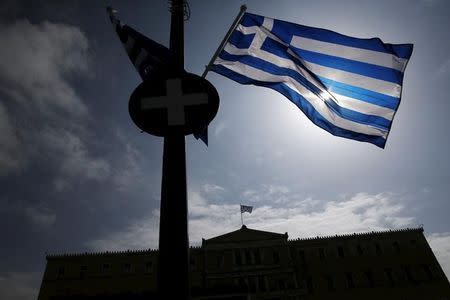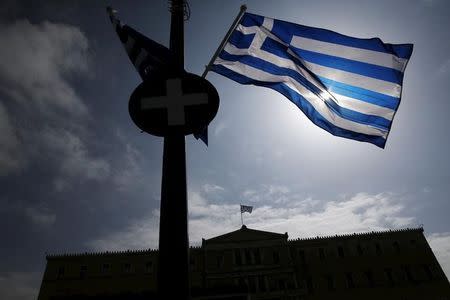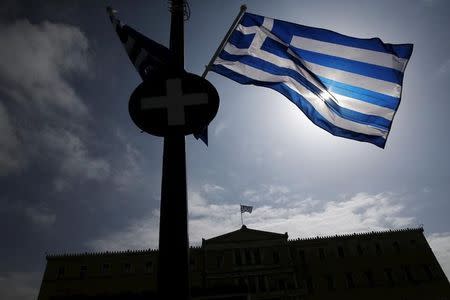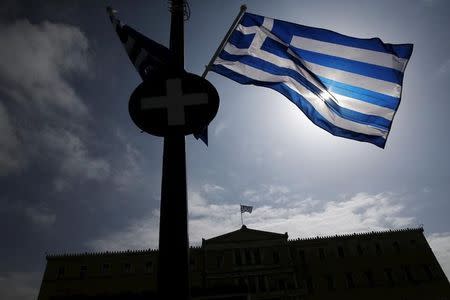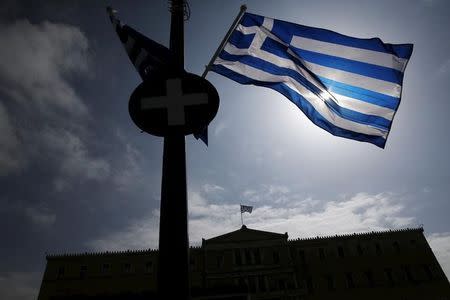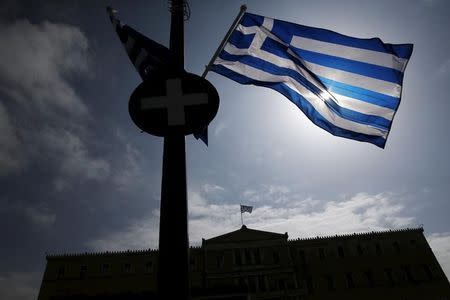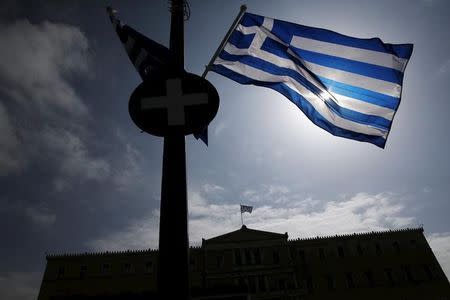Greece fails in bid for early cash release, reforms awaited
By Jan Strupczewski and George Georgiopoulos
BRUSSELS/ATHENS (Reuters) - Greece failed in a bid on Wednesday to secure a quick cash payment from the euro zone rescue fund to help stave off potential bankruptcy next month, raising pressure on Athens to deliver a convincing reform programme within days.
Athens had appealed for the European Financial Stability Facility to return 1.2 billion euros (884.2 million pounds) it said it had overpaid when it transferred bonds intended for bank recapitalisation back to the Luxembourg-based fund this month.
But senior Euro zone officials agreed in a telephone conference on Wednesday that Greece was not legally entitled to the money, although they said they would consider how to deal with the issue in the future.
The decision by the Eurogroup Working Group was a setback for leftist Prime Minister Alexis Tsipras, who is struggling to secure fresh funds to keep his government afloat while he presents a comprehensive reform plan and argues for debt relief.
A source familiar with Greece's financial position told Reuters on Tuesday Athens would run out of money on April 20 without new cash.
EU paymaster Germany, to which Tsipras made a fence-mending visit this week after weeks of acrimony between Athens and Berlin, was among the countries that opposed handing back the 1.2 billion euros.
"We see no reason to release it," German Finance Ministry spokesman Martin Jaeger told a routine news conference, adding that EFSF funding was made available to Greece last year as a safeguard during bank stress tests but had not been needed.
Jaeger said euro zone finance ministers decided last month, when they extended Greece's bailout agreement, to transfer that money back to the EFSF in Luxembourg where it would be available for bank recapitalisation should Greece need it in future.
The German stance made clear that despite the improved atmosphere in relations between Tsipras and Chancellor Angela Merkel, Berlin has not softened its position in substance.
"WE LOVE GREECE"
Tsipras has promised to deliver a full list of planned reforms by next Monday, but it is not clear whether it will include measures agreed by the previous conservative-led government such as privatisations and pension reform.
Euro zone officials have said it will be hard for Athens to make the budget numbers add up without a forecast 4 billion euros due from the sale of state assets this year and savings through later retirement and a merging of pension funds.
However, both reforms are bitterly opposed by Tsipras' leftist Syriza party, and ministers have already halted several planned privatisations.
Greece is also hoping to secure another 1.9 billion euros in profits made by the European Central Bank on past purchases of Greek government bonds, but the euro zone has tied that to approval of its reforms by the institutions representing its main creditors - the International Monetary Fund, the ECB and the European Commission.
Commission President Jean-Claude Juncker told the European Parliament he had been "very pessimistic" about Greece in recent weeks but now believed its bailout process was back on track.
"I have to recognise that I was very pessimistic during the last weeks because there was no progress whatsoever," Juncker told the European Parliament.
"But now we are back in a normal process and I do think that we can come to a conclusion that will be both in favour of Greece - we love Greece - and the European Union," he said.
The ECB slightly loosened its leash on Greek banks on Wednesday, increasing the amount of emergency cash they can borrow from the Greek central bank to above 71 billion euros, from 69.8 billion previously, a banking source said.
However, wearing its other hat as the euro zone's banking supervisor, the ECB ordered Greek banks in a letter not to increase their holdings of short-term government debt.
ECB chief economist Peter Praet called on policymakers to exercise more "verbal discipline" on Greece to avoid stoking already high political and market tensions.
(Additional reporting by Robin Emmott and Alastair Macdonald in Brussels, Marc Jones in London, Stephen Brown and Gernot Heller in Berlin; Writing by Paul Taylor Editing by Jeremy Gaunt)


